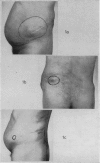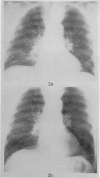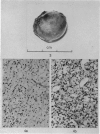Abstract
Eighty patients with advanced metastatic renal cancer have been treated with hormones, chiefly medroxyprogesterone acetate (Provera). This progestational compound is remarkably free from side-effects and can be given in high dosage for long periods without serious complications. Ninety per cent of cases had multiple metastases: in 76% more than one organ was involved and nearly 50% were seriously ill or “terminal”.
Subjective improvement occurred in at least 55%. In 11 patients there was marked improvement in the radiological or clinical signs of tumour within 2 to 6 weeks of commencing treatment or changing to a different hormone. In two further cases improved general health was associated with stationary metastases for 20 months. A significant objective response occurred in 16% of the total series. A favourable response was seen more often in men (21%) than in women (8%). If deaths within 6 weeks are excluded the objective response rate in men is increased to 27%. Although the response of advanced renal cancer to hormonal treatment is usually incomplete and of brief duration, it is possible for such treatment to offer a “new lease of life” to a seriously ill patient, even in old age, for 2 to 3 years.
Full text
PDF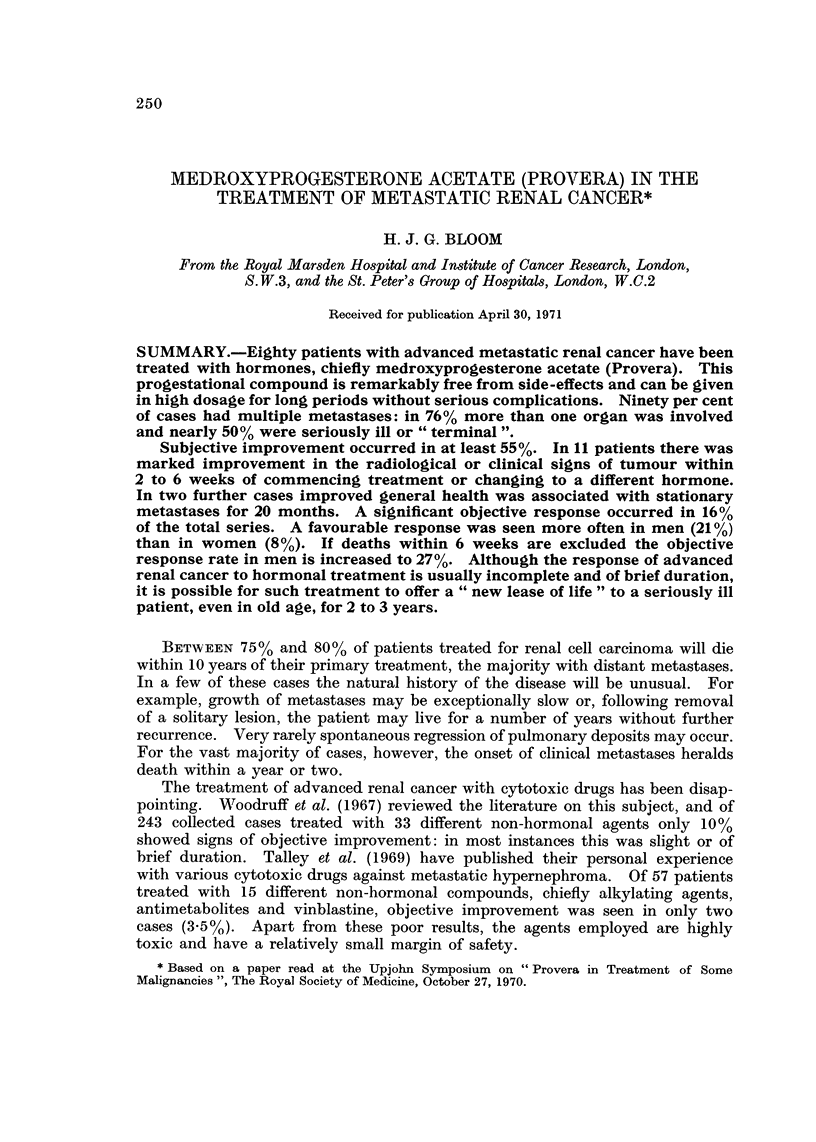
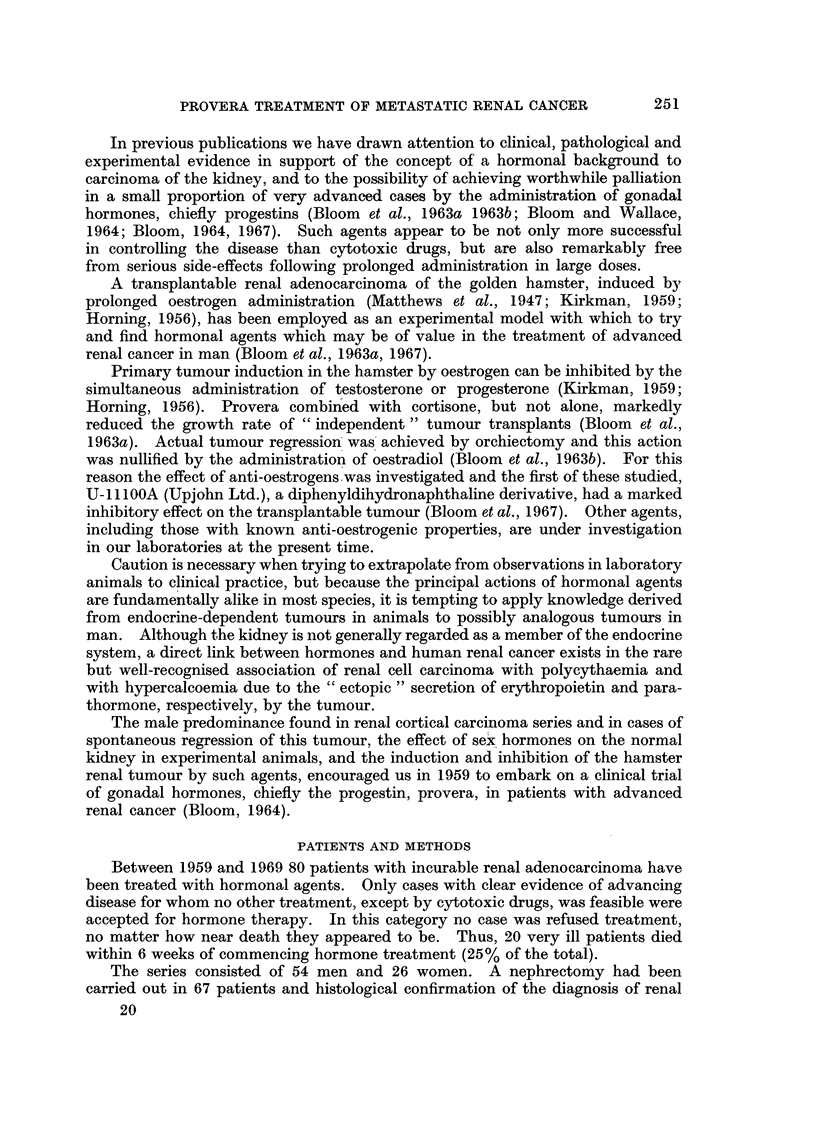
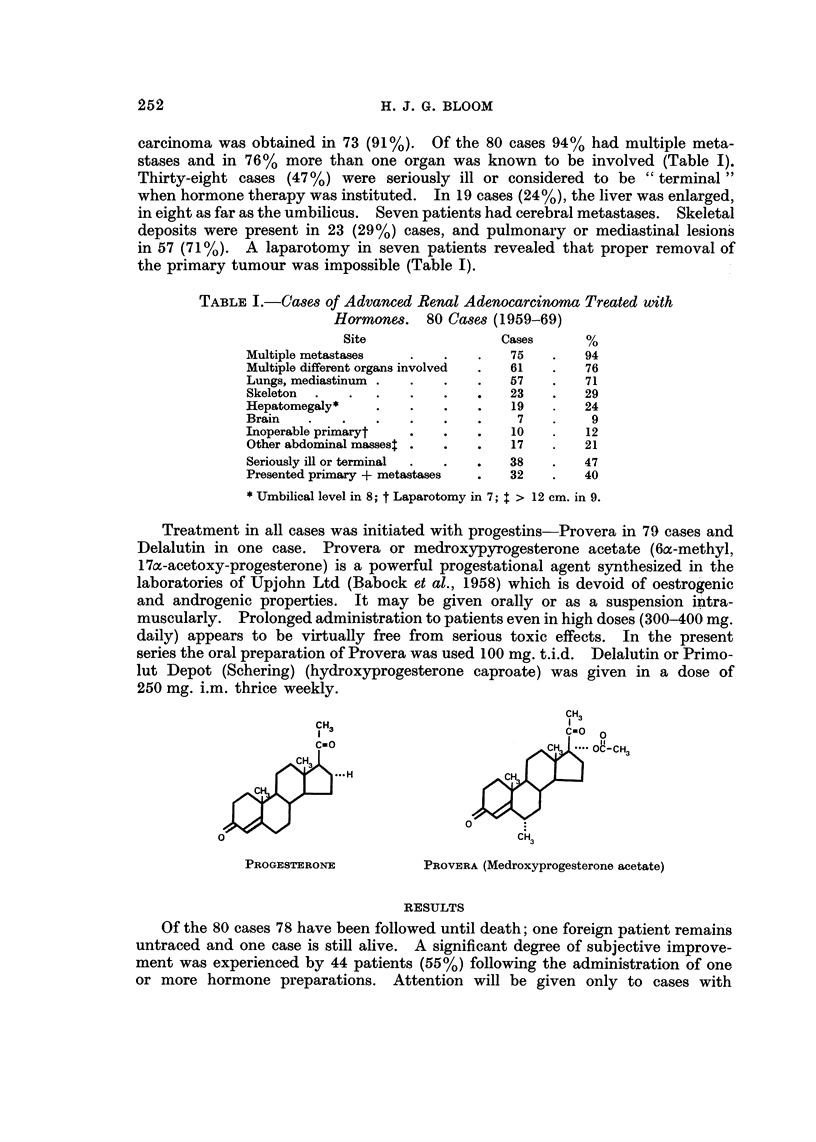
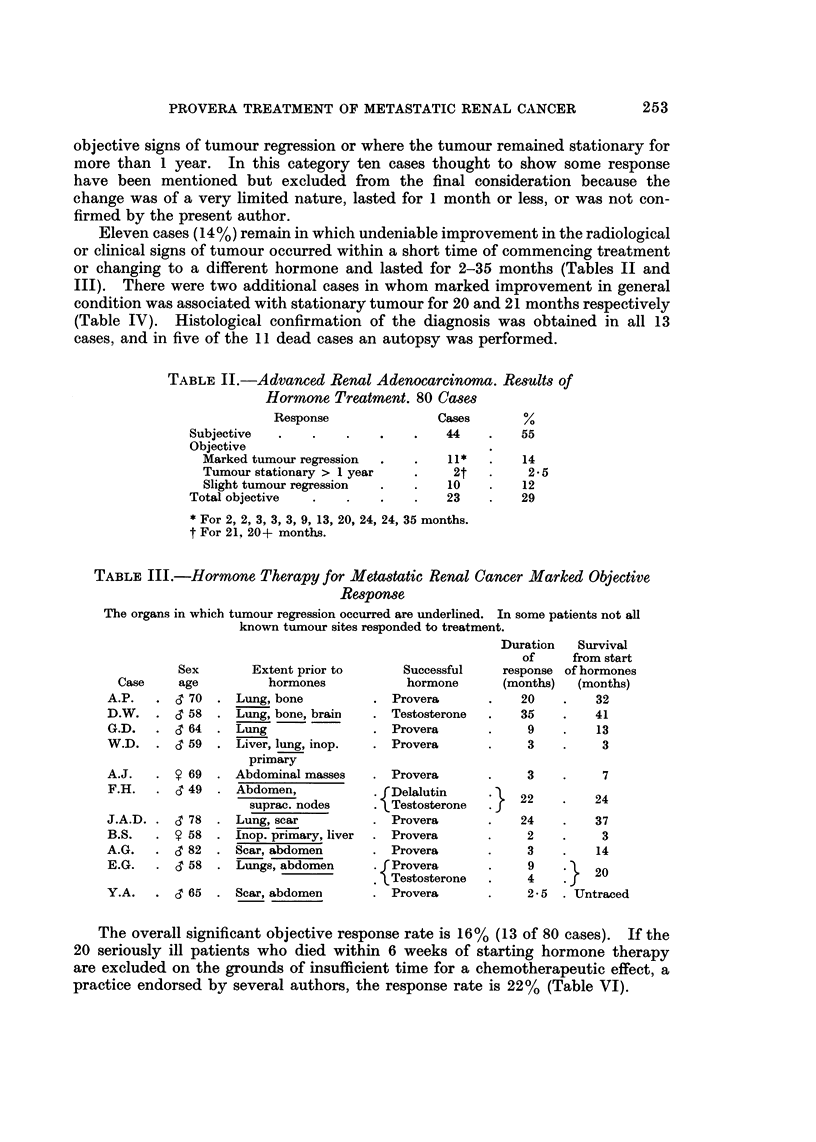
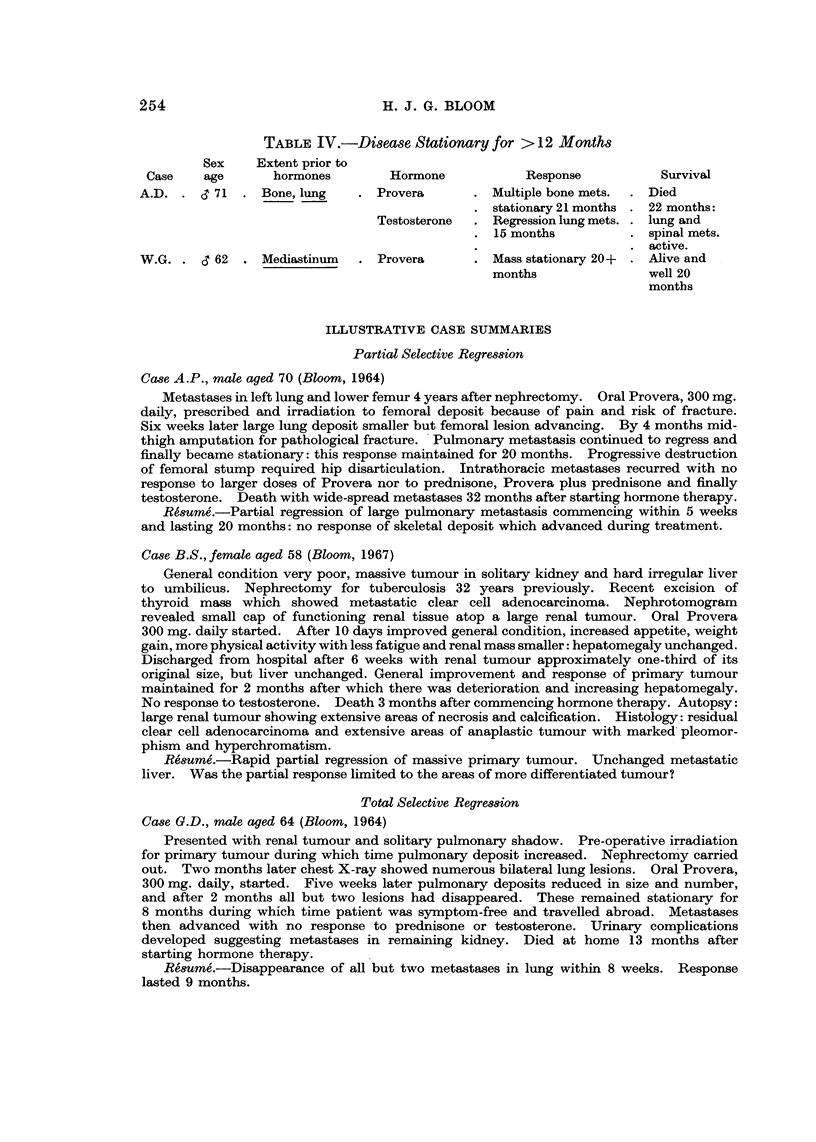
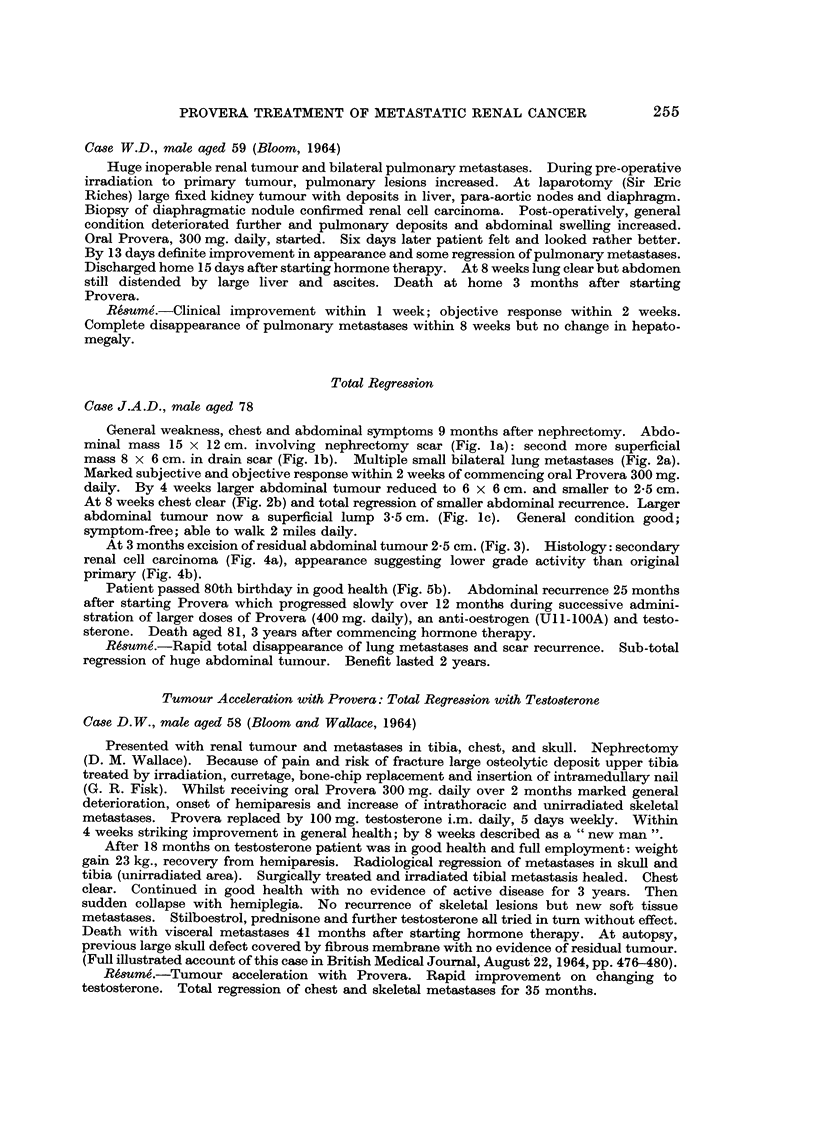
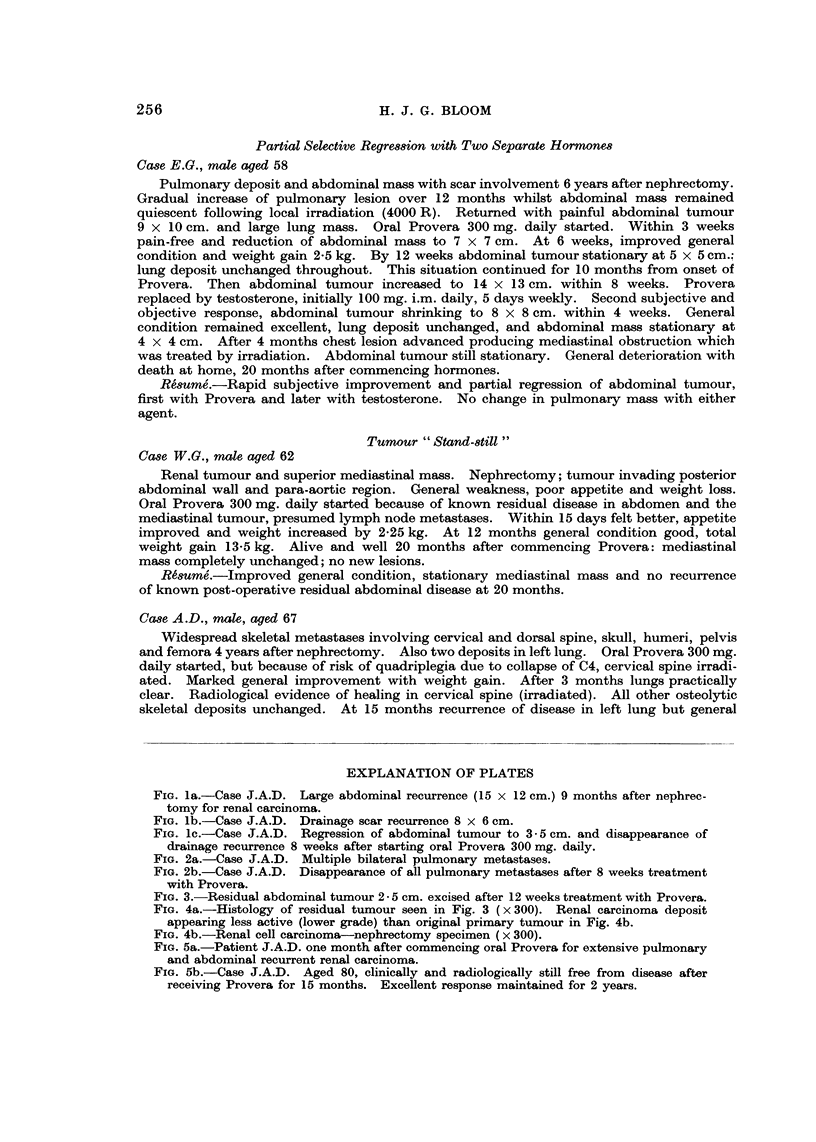
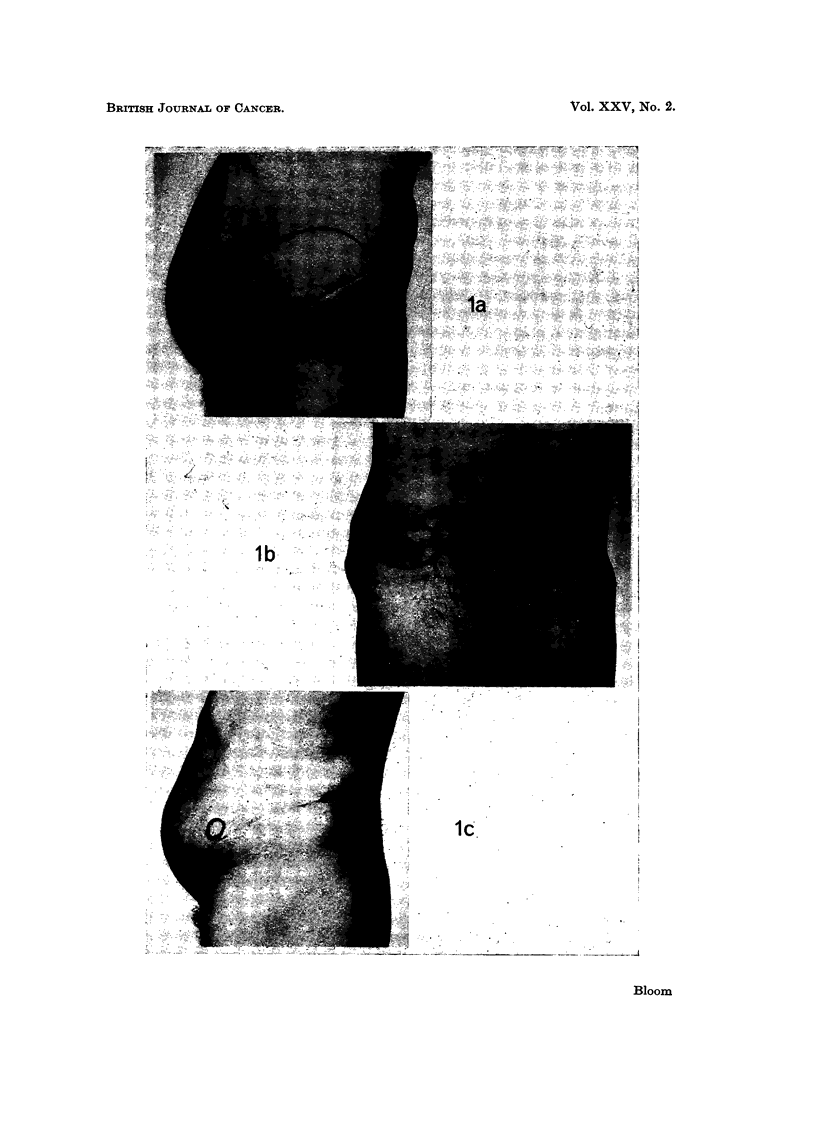
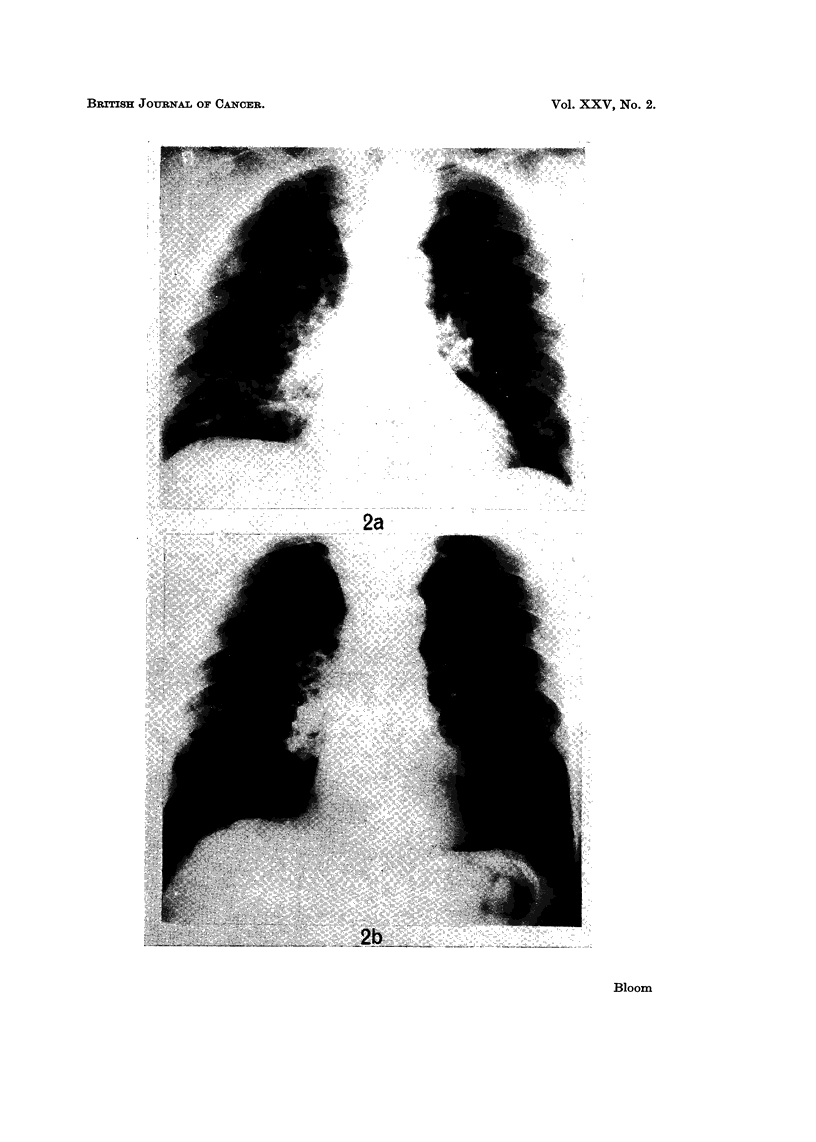
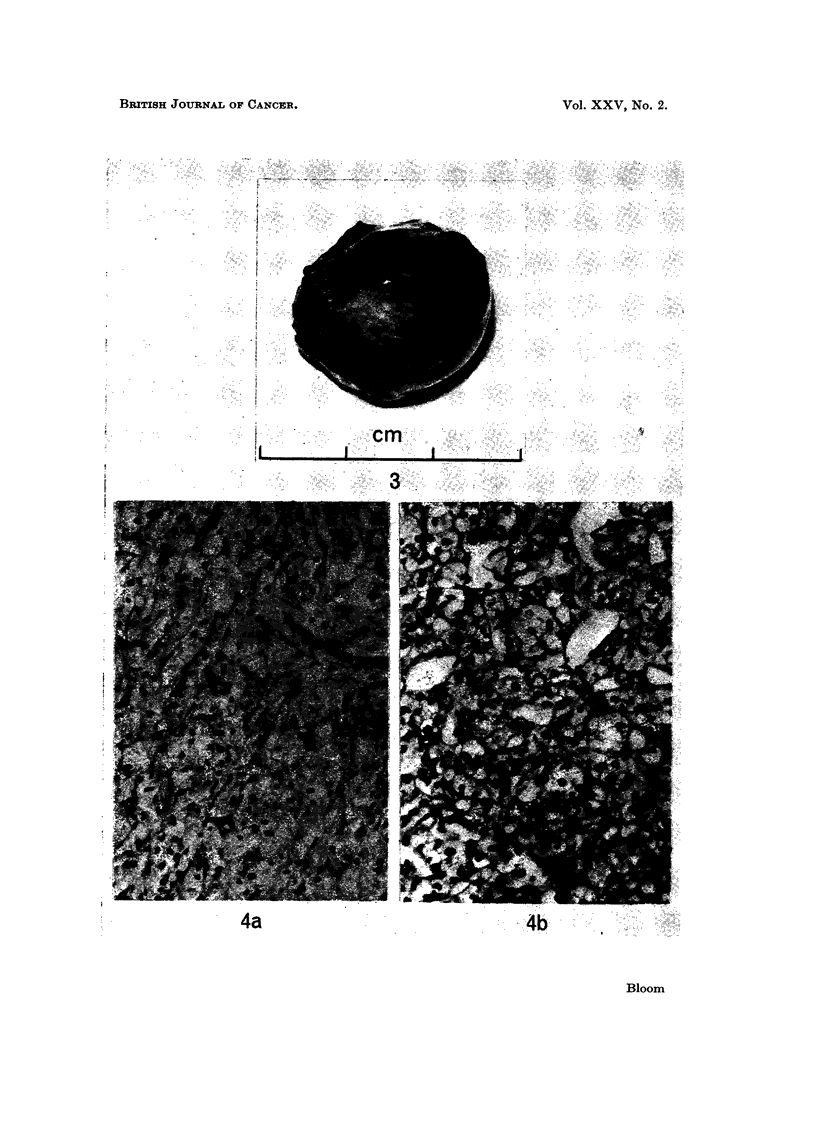

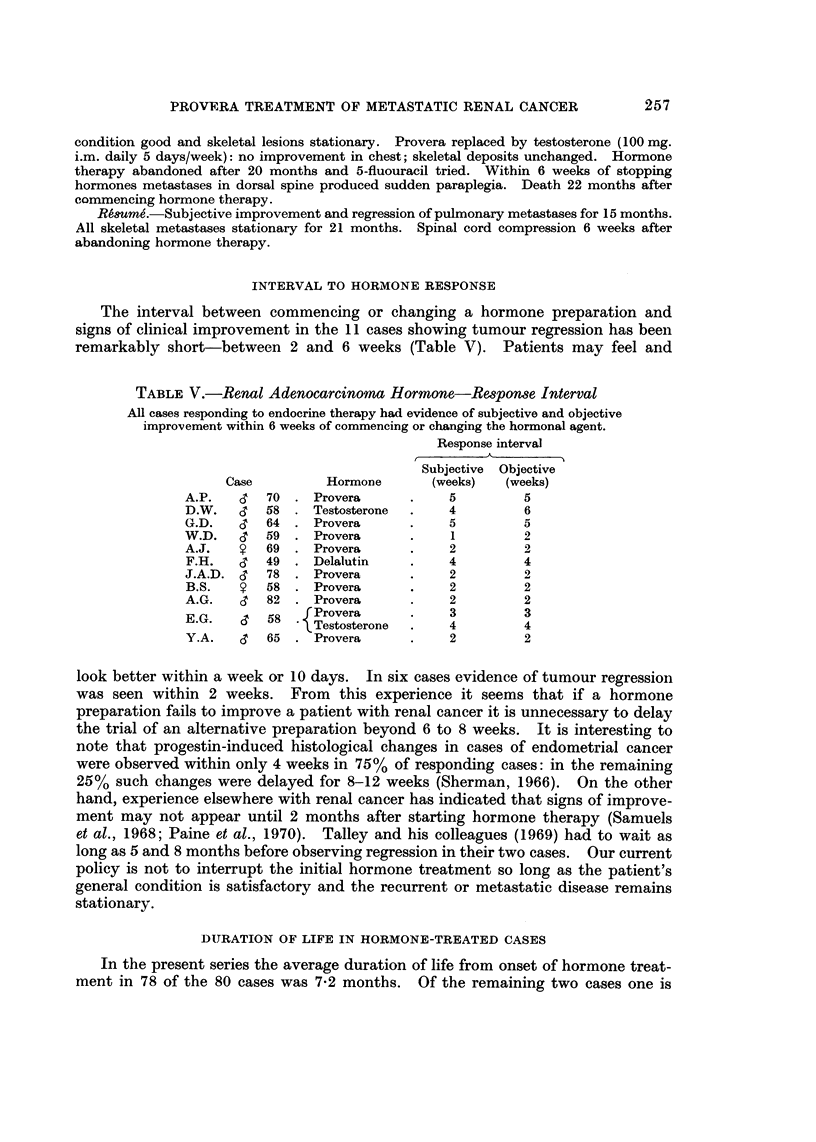
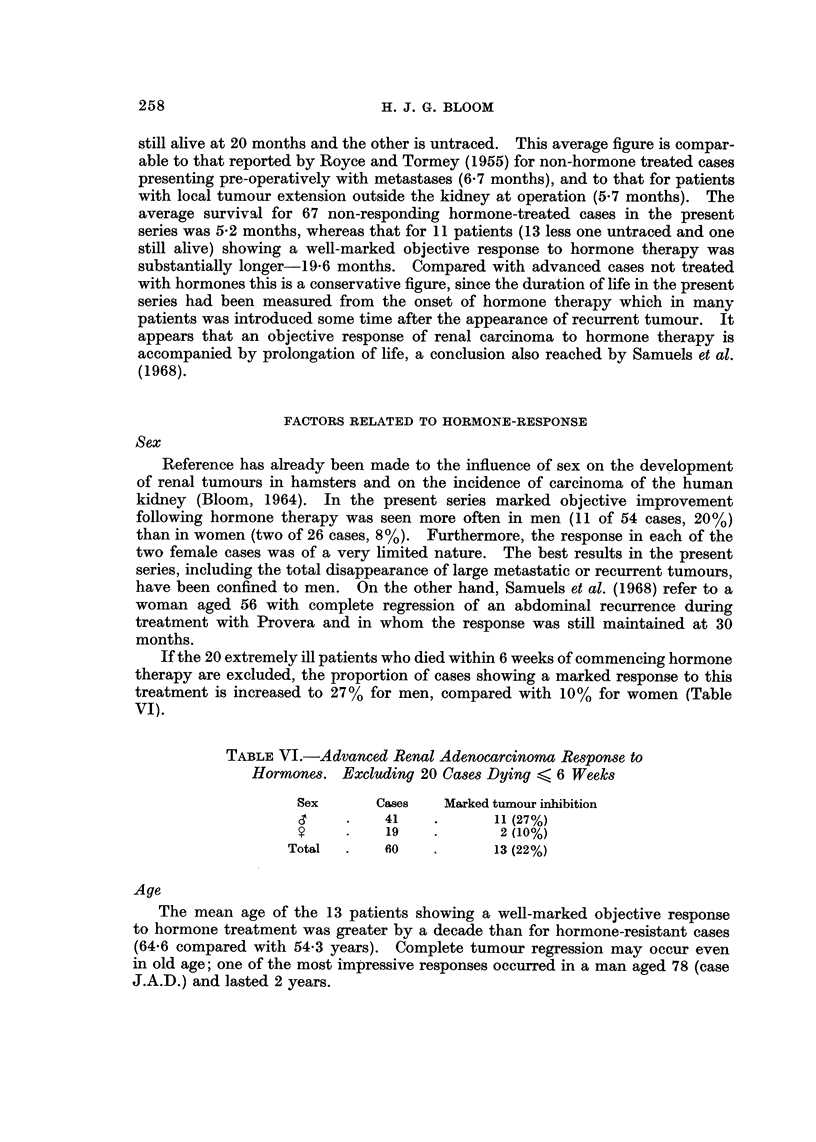
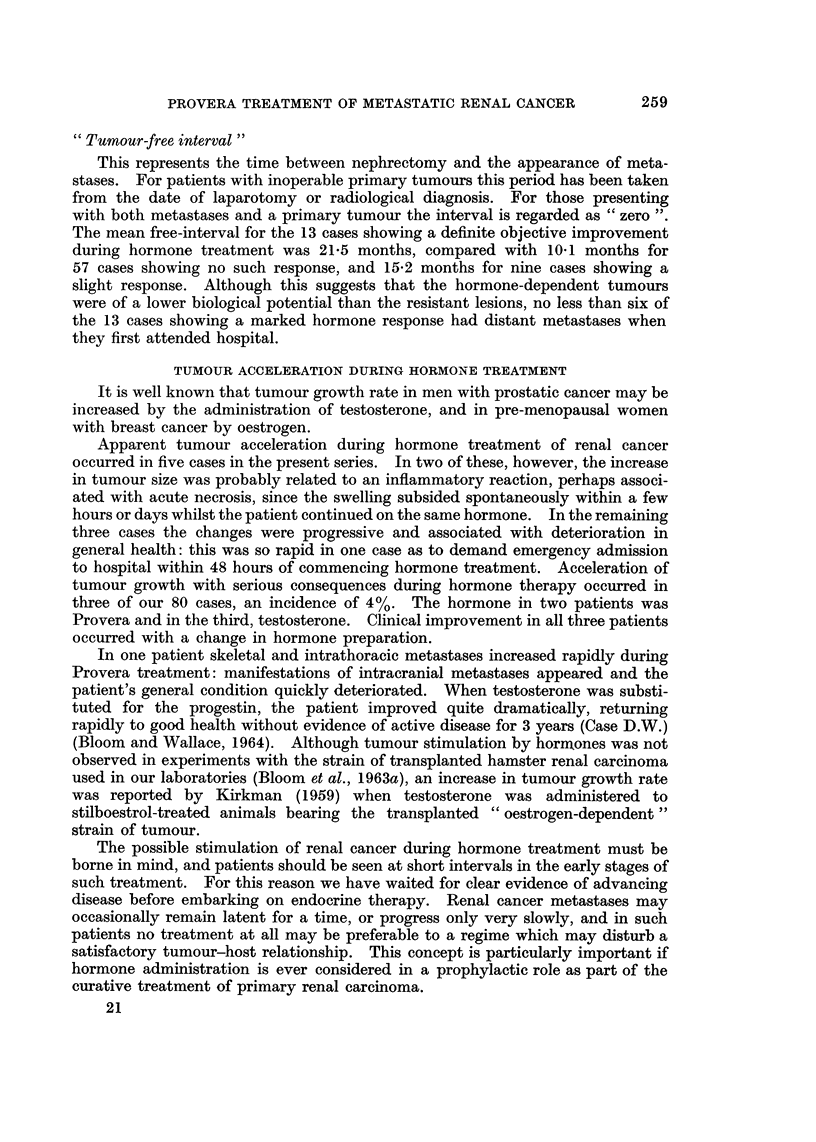
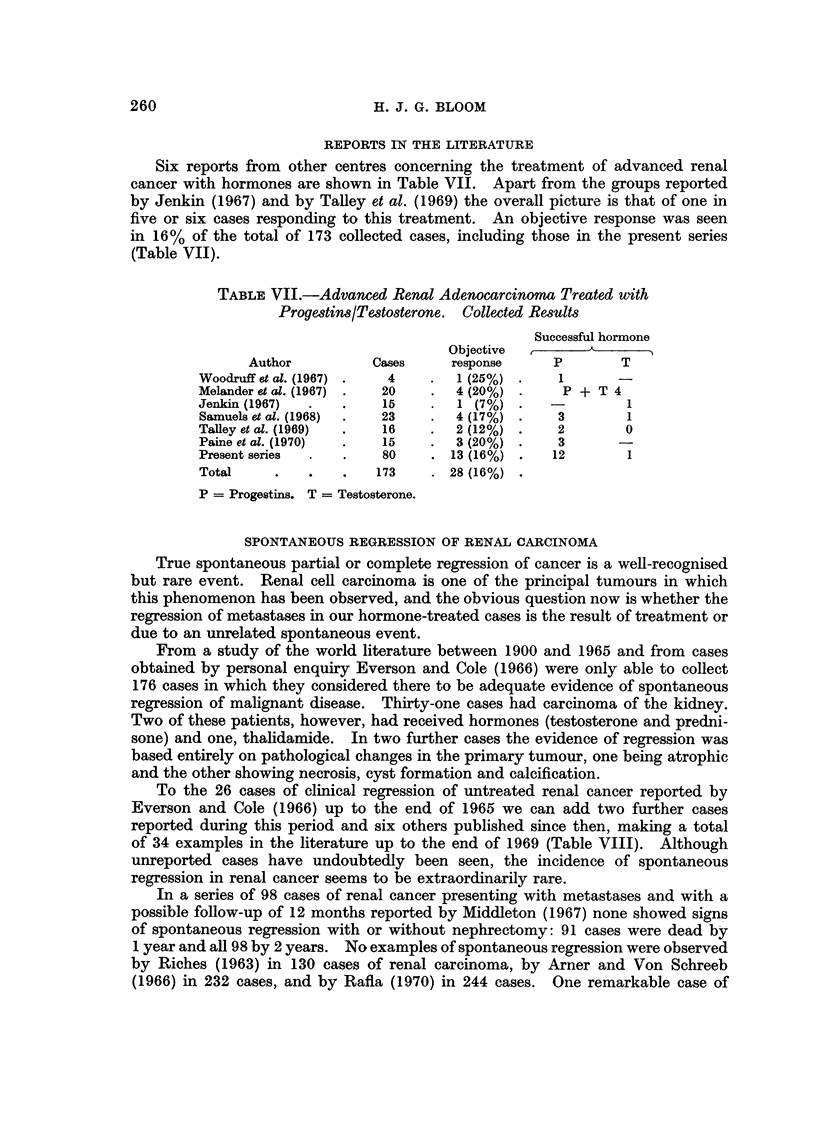
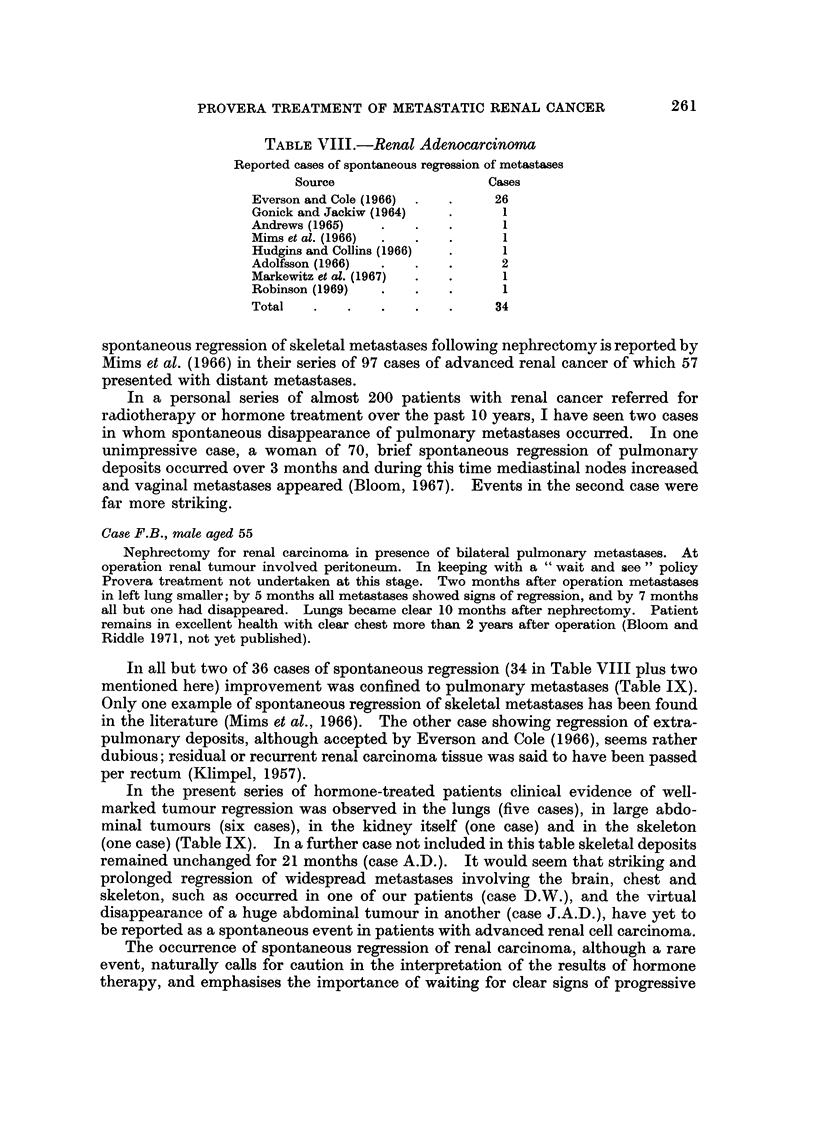
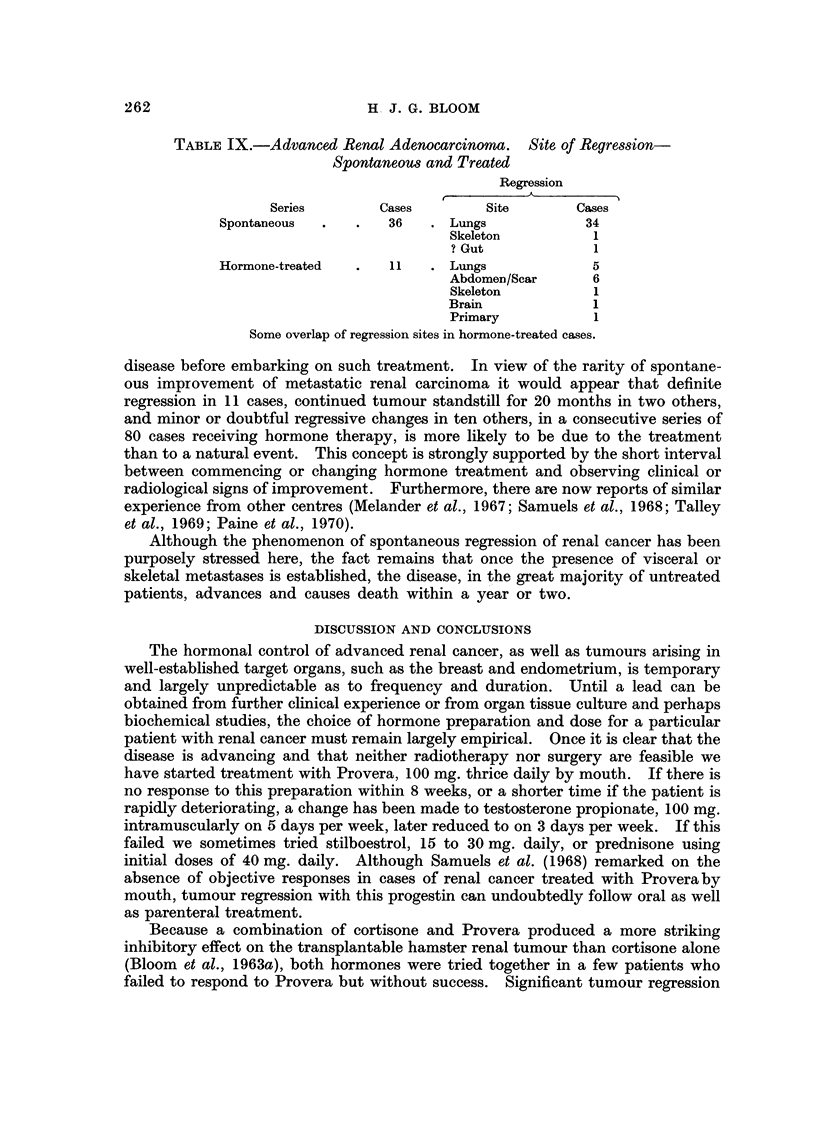
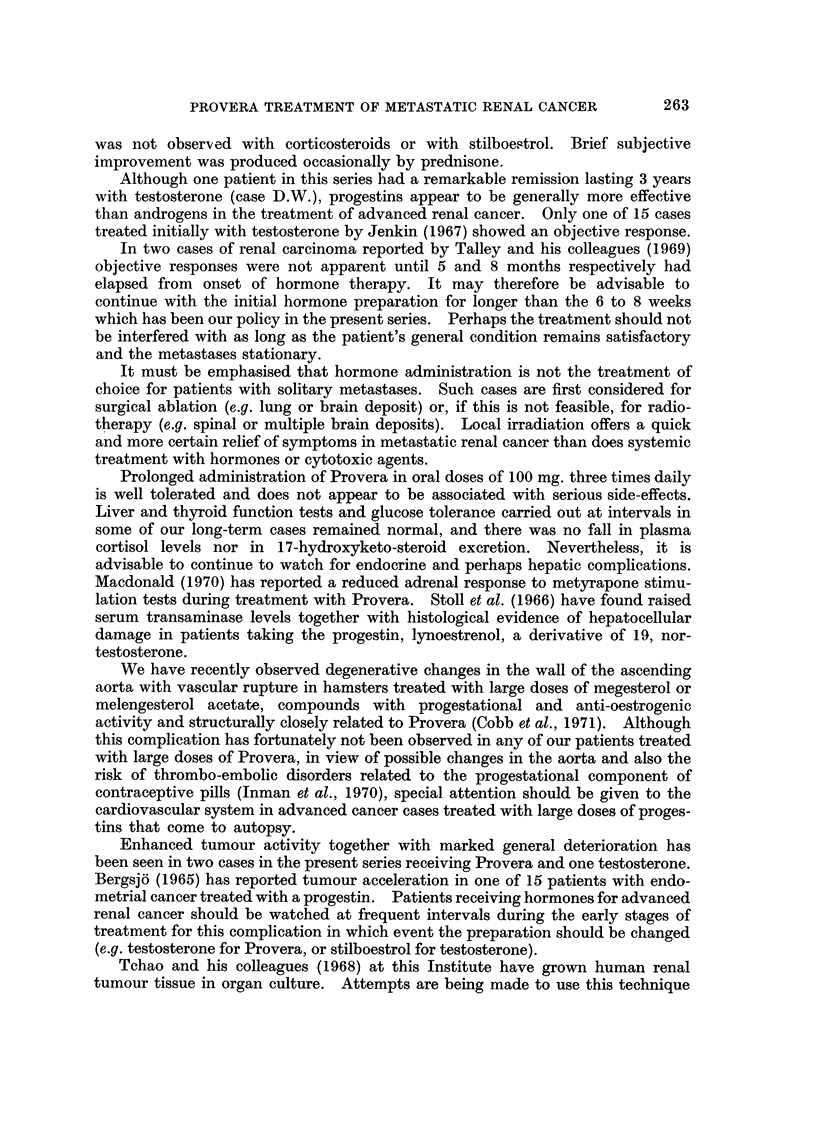
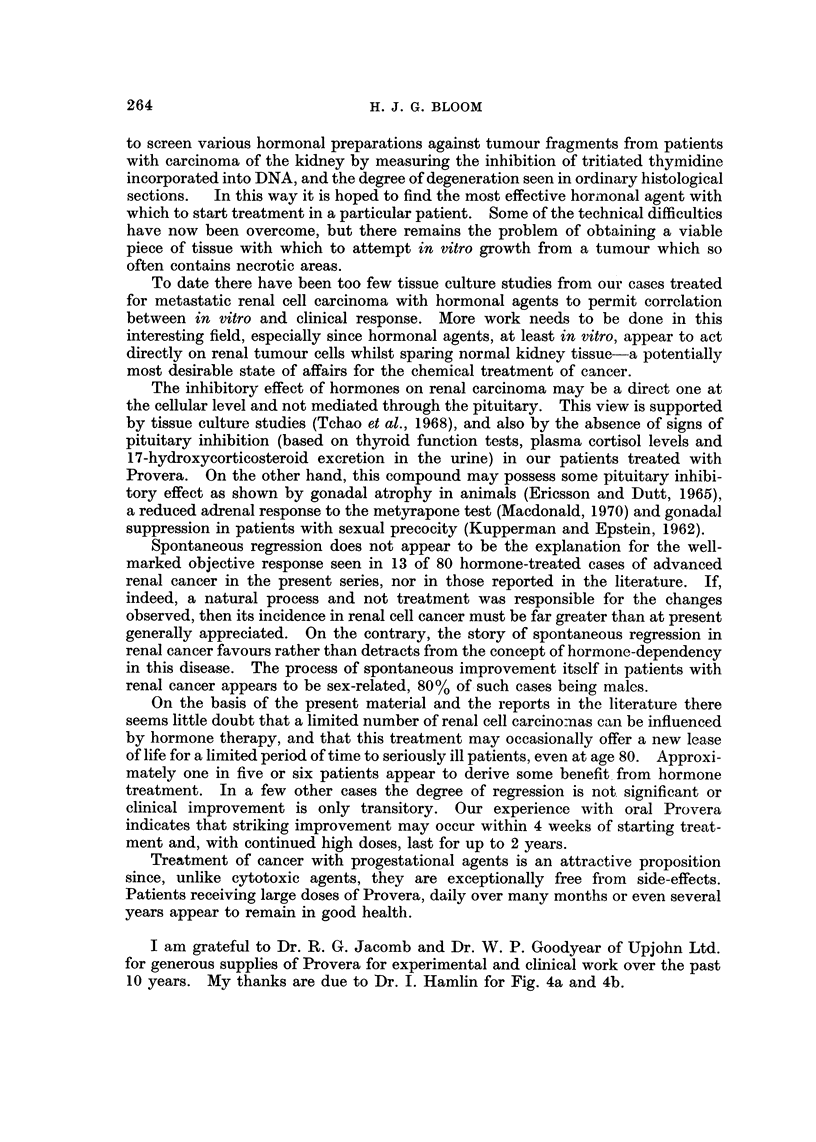
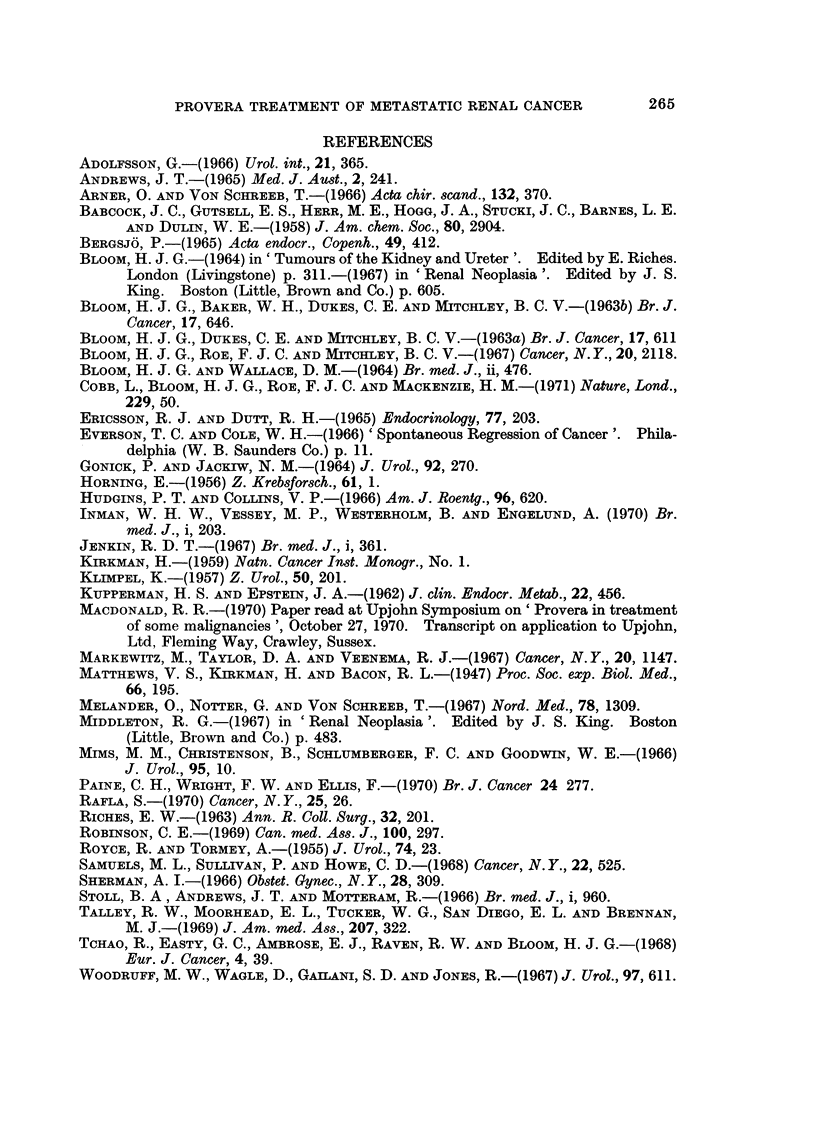
Images in this article
Selected References
These references are in PubMed. This may not be the complete list of references from this article.
- ANDREWS J. T. SPONTANEOUS DISAPPEARANCE OF PULMONARY METASTASES IN CARCINOMA OF THE KIDNEY. Med J Aust. 1965 Aug 7;2(6):241–242. [PubMed] [Google Scholar]
- Adolfsson G. Regression of hypernephroma. Urol Int. 1966;21(4):365–374. doi: 10.1159/000279430. [DOI] [PubMed] [Google Scholar]
- Arner O., von Schreeb T. Renal adenocarcinoma. Prognosis. Acta Chir Scand. 1966 Oct;132(4):370–376. [PubMed] [Google Scholar]
- BLOOM H. J., BAKER W. H., DUKES C. E., MITCHLEY B. C. HORMONE-DEPENDENT TUMOURS OF THE KIDNEY. II. EFFECT OF ENDOCRINE ABLATION PROCEDURES ON THE TRANSPLANTED OESTROGEN-INDUCED RENAL TUMOUR OF THE SYRIAN HAMSTER. Br J Cancer. 1963 Dec;17:646–656. doi: 10.1038/bjc.1963.82. [DOI] [PMC free article] [PubMed] [Google Scholar]
- BLOOM H. J., WALLACE D. M. HORMONES AND THE KIDNEY: POSSIBLE THERAPEUTIC ROLE OF TESTOSTERONE IN A PATIENT WITH REGRESSION OF METASTASES FROM RENAL ADENOCARCINOMA. Br Med J. 1964 Aug 22;2(5407):476–480. doi: 10.1136/bmj.2.5407.474. [DOI] [PMC free article] [PubMed] [Google Scholar]
- Bloom H. J., Roe F. J., Matchley B. C. Sex hormones and renal neoplasia. Inhibition of tumor of hamster kidney by an estrogen antagonist, an agent of possible therapeutic value in man. Cancer. 1967 Dec;20(12):2118–2124. doi: 10.1002/1097-0142(196712)20:12<2118::aid-cncr2820201209>3.0.co;2-u. [DOI] [PubMed] [Google Scholar]
- GONICK P., JACKIW N. M. REGRESSION OF PULMONARY METASTASES FROM RENAL ADENOCARCINOMA. J Urol. 1964 Oct;92:270–277. doi: 10.1016/S0022-5347(17)63945-4. [DOI] [PubMed] [Google Scholar]
- Hudgins P. T., Collins V. P. Radiotherapy for renal adenocarcinoma. Am J Roentgenol Radium Ther Nucl Med. 1966 Mar;96(3):620–625. doi: 10.2214/ajr.96.3.620. [DOI] [PubMed] [Google Scholar]
- Inman W. H., Vessey M. P., Westerholm B., Engelund A. Thromboembolic disease and the steroidal content of oral contraceptives. A report to the Committee on Safety of Drugs. Br Med J. 1970 Apr 25;2(5703):203–209. doi: 10.1136/bmj.2.5703.203. [DOI] [PMC free article] [PubMed] [Google Scholar]
- Jenkin R. D. Androgens in metastatic renal adenocarcinoma. Br Med J. 1967 Feb 11;1(5536):361–361. doi: 10.1136/bmj.1.5536.361-a. [DOI] [PMC free article] [PubMed] [Google Scholar]
- KLIMPEL K. Spontanheilung eines Hypernephroms nach Nephrektomie durch mehrfache Ausscheidung von Geschwulstgewebe aus dem Darmkanal. Z Urol. 1957;50(4):201–209. [PubMed] [Google Scholar]
- Markewitz M., Taylor D. A., Veenema R. J. Spontaneous regression of pulmonary metastases following palliative nephrectomy. Case report. Cancer. 1967 Jul;20(7):1147–1154. doi: 10.1002/1097-0142(196707)20:7<1147::aid-cncr2820200718>3.0.co;2-k. [DOI] [PubMed] [Google Scholar]
- Paine C. H., Wright F. W., Ellis F. The use of progestogen in the treatment of metastatic carcinoma of the kidney and uterine body. Br J Cancer. 1970 Jun;24(2):277–282. doi: 10.1038/bjc.1970.31. [DOI] [PMC free article] [PubMed] [Google Scholar]
- RICHES E. On carcinoma of the kidney. Ann R Coll Surg Engl. 1963 Apr;32:201–208. [PMC free article] [PubMed] [Google Scholar]
- Samuels M. L., Sullivan P., Howe C. D. Medroxyprogesterone acetate in the treatment of renal cell carcinoma (hypernephroma). Cancer. 1968 Sep;22(3):525–532. doi: 10.1002/1097-0142(196809)22:3<525::aid-cncr2820220306>3.0.co;2-c. [DOI] [PubMed] [Google Scholar]
- Sherman A. I. Progesterone caproate in the treatment of endometrial cancer. Obstet Gynecol. 1966 Sep;28(3):309–314. [PubMed] [Google Scholar]
- Talley R. W., Moorhead E. L., 2nd, Tucker W. G., San Diego E. L., Brennan M. J. Treatment of metastatic hypernephroma. JAMA. 1969 Jan 13;207(2):322–328. [PubMed] [Google Scholar]
- Woodruff M. W., Wagle D., Gailani S. D., Jones R., Jr The current status of chemotherapy for advanced renal carcinoma. J Urol. 1967 Apr;97(4):611–618. doi: 10.1016/S0022-5347(17)63087-8. [DOI] [PubMed] [Google Scholar]





